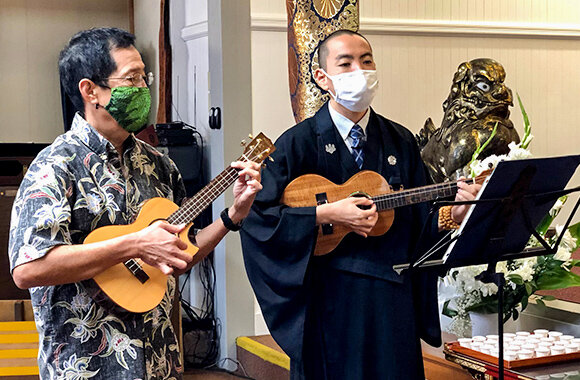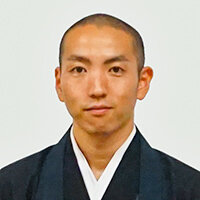Use of Cookies
Our website uses cookies to facilitate and improve your online experience.
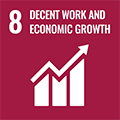
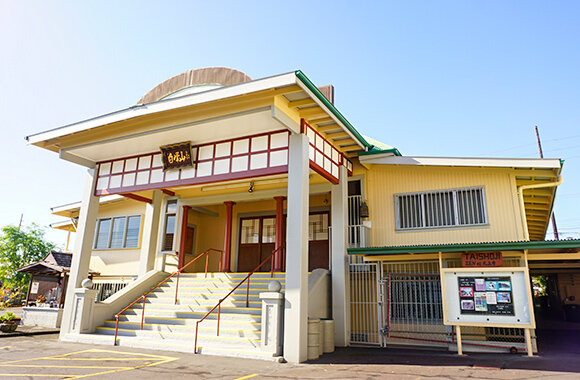
I would like to talk about the 8th theme of the SDGs, "Promote sustained, inclusive and sustainable economic growth, full and productive employment and decent work for all."
This theme's aim is for everyone to achieve decent work. Decent work means opportunities for everyone to get work that is productive and delivers a fair income, security in the workplace and social protection for families, better prospects for personal development and social integration.
There are still many people in the world who are unable to get the job they want due to gender or race differences, or who have to work long hours for a low salary. In order to solve these problems, efforts of each company are indispensable. We must think about how everyone can work comfortably, such as create an environment where both men and women can work equally, have shorter working hours, higher salaries, and so on. Also, in order to solve these problems, it will be important to have each of us be considerate of others' feelings. If your company's boss is always able to act compassionately towards his subordinates, he will accept you and other subordinates' opinions and not force you to work long hours. Or, if your co-worker can act compassionately with people around him, he will give you words of encouragement, and sometimes he will collaborate with you to finish your work on time. To be considerate of others' feelings is one of the important Buddhist practices that is called "Do-ji (同事)" in Japanese. Another translation of Do-ji is “Empathy.” Dogen Zenji explained the concept of Do-ji this way: "Do-ji (Empathy) means not to differentiate; to make no distinction between self and others." This means that it is important not to think about things only from your own perspective, but to always "think of things from the other person's point of view." In your daily life, do you think about things from the standpoint of those around you? This can be difficult if you don't do it consciously on a daily basis.
Currently, I am working to foster a "compassionate heart" to think about things from the standpoint of others. This is not for those who are actually working, but for children who will be working in the future, to give them the opportunity to study their minds at the temple and to develop their humanity through Buddhist teachings.
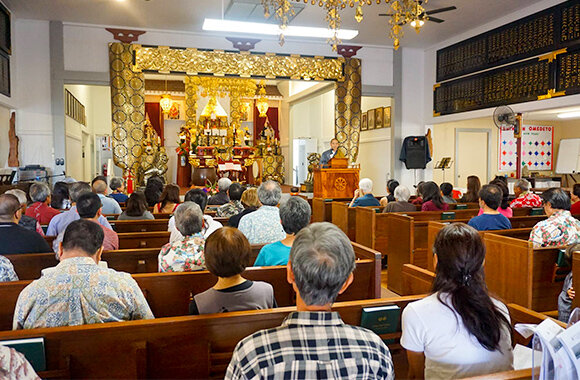
At the Soto Zen temple in Hawaii, where I live, in addition to activities such as Zazen and memorial services, we practice "Sunday Service" that incorporates the customs of Christian culture so that the temple will be accepted by the people in Hawaii. Sunday service has been held at each temple for a long time. I'm the resident minister of Taisho-ji Temple in Hilo, Hawaii. Taisho-ji has the service every Sunday from 9:00 a.m. At the Sunday service, about 30 members gather at Taisho-ji, and we have Zazen, chanting the heart Sutra, singing Buddhist songs with my ukulele, and ending with a Dharma message. Our Sunday service is for both children and adults, and I make a program with my assistants and members who run the Sunday service that even children can enjoy participating in. Since most of the children and their families are third or fourth generation Japanese-American, the program will be conducted entirely in English. During my Dharma message, I introduce the teachings of Buddha, Dogen Zenji, Keizan Zenji and talk about how to use those teachings in daily life. I always think of how Buddhism can become a part of children's daily lives.
While attending this Sunday service every week, children naturally put their hands in gassho toward the Buddha when they enter and exit at the temple and greet people voluntarily. And even though our Sunday service is about 30 minutes to 1 hour long, children are able to sit quietly in a chair and listen to the minister's story seriously. I hope that through the Sunday services, children will develop the power of "Do-ji" to respect and act with compassion toward those around them.
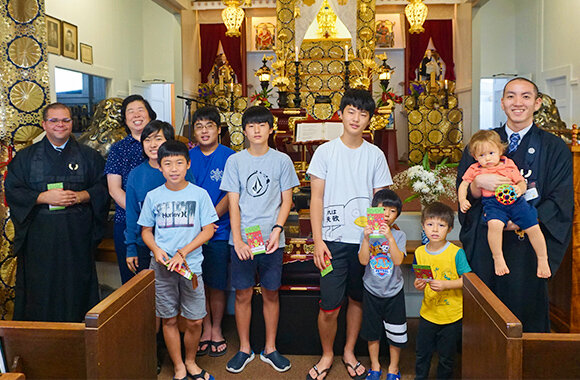
In addition, the 8th theme of the SDGs is not just about achieving decent work. Increasing child labor and unemployment are also major issues. As I deepened my understanding of this 8th theme, I was very shocked to learn that "approximately 160 million children in the world are forced to work."
In some of the poorest countries in the world, there are children who can't go to school to survive and do the work of adults, such as carrying heavy sand and undergoing hard farming labor every day. Moreover, it is said that there are more than 200 million unemployed people without jobs in the world and 700 million working poor. Many people around the world are not able to work satisfactorily due to the economic situation of the country and the gap between rich and poor.
Increasing the unemployment rate is also a serious problem in Hawaii. Since the start of the pandemic of the coronavirus, the unemployment rate has peaked at 23%, with about one in five people losing their jobs. Hawaii has the highest unemployment rate in the United States. A Japanese acquaintance who often comes to Taisho-ji was engaged in a tourism business specializing in Japanese who go to tourist destinations in Hawaii, but the company went bankrupt due to a sharp decrease in tourists. He had to return to Japan. There are many people around me who have lost their jobs.
Based on these facts, I realized that the 8th goal of the SDGs is an important issue that we must work together to solve. This issue might be solved by the end of the coronavirus, or by financial support and economic policy from the national government and state, but is there anything we can do individually? It is important that each of us understands this issue in the first place. It may also be good to donate to the support group, listen to people who are having trouble working around you, and think together about how to work well. There are various ways, but we must work together to create an equitable society. It is Buddha's compassion and the practice of Do-ji. Let's create a bright world where everyone can work together in a lively and rewarding way and spend time together with a smile.
